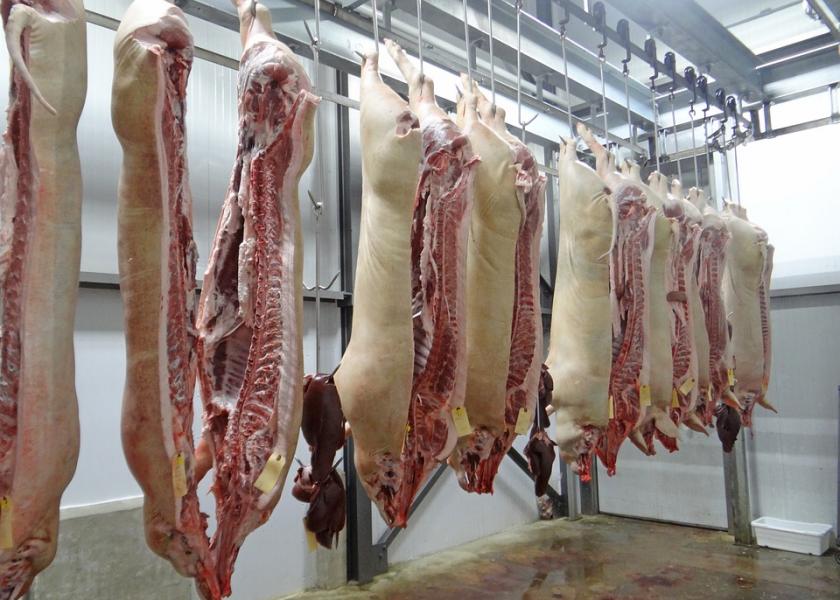Pork Signals: It’s Time to Harden Supply Chains

The closures of the Olymel plant in Quebec and the Tyson plant in Columbus Junction, Iowa, due to employees with COVID-19, awakened the realization more plants could close. At a time of massive production, the thought of shuttering plants is the unspoken fear on everyone’s mind. African swine fever (ASF) and now COVID-19 seem certain to hasten a technological restructuring of the U.S. and global swine industries.
All this uncertainty comes on the heels of McDonald’s decision to suspend all-day breakfast, where pork is king, to simplify processes and the disappearance of institutional demand (universities, for instance, are closed). Most restaurants are only open for pickup or delivery orders, resulting in up to a 90% reduction in sourcing food from restaurants in many, if not most areas.
The level of coming disruption policymakers fear and plan for involves events such as electromagnetic pulse attacks that force surges of current through grids that basically destroy circuitry and bring down electrical power, potentially for months. Since so much of the U.S. infrastructure is dependent on electrical power, not to mention life as we know it, the likelihood of such an attack is remote since it would most certainly bring on World War III.
Temporarily bringing down industries with epidemics/quarantines and logistical disasters, though part of government and plant strategic planning, has always been reactionary rather than visionary. The biggest issue facing animal agriculture in the U.S. now is how to rethink production and its preharvest and postharvest supply chains to harden them against animal or human-borne pandemics or other disasters. Creating resilience in the chain is now a matter of extreme urgency. While the ASF regionalization strategy has addressed some factors, at this point, there is no real firewall against widespread and temporary human epidemics sidelining production or supply chain segments for extended periods.
Protecting current workers and having a source of trained or quickly trainable replacements is vital to forestalling an unmitigated short-term disaster. The labor force for agricultural production and processing is already tight, although the high historic turnover in processing plants has created a host of strategies that can keep the lines moving with sufficient efficiency and product quality in the face of heavy employee turnover. However, some of those strategies have required more workers than might be necessary otherwise. For instance, keeping every part of the cutting floor assignment given to any one employee relatively simple and repetitive means that if workers leave for any number of reasons, replacements need only be trained in that task.
The adoption of robotics is certain to accelerate as the cost of this pandemic begins to be fully expressed. Never has it been more important to understand the capability and capacity of your packer and supply chain to imaginatively create a more secure future than it is today. One example of creatively securing the end-flow of the supply chain is McDonalds (and several other fast-food chains and grocery stores). I can launch an app on my phone, order sausage, Canadian bacon and bacon-dressed sandwiches, pay for them and have them delivered to my home, staged for pickup in a designated spot in the parking lot or pick them up in the drive through. A sick employee can still close a location and negate all of this, however, this imaginative implementation must be matched in the supply chain, with consumers and through production.
More from Farm Journal's PORK:
China's Changing Pork Needs: It's Time to Differentiate
Pulling the Lever: Should You Slow Down Pig Growth?
Uncharted Waters: High Uncertainty in the Pork Industry







